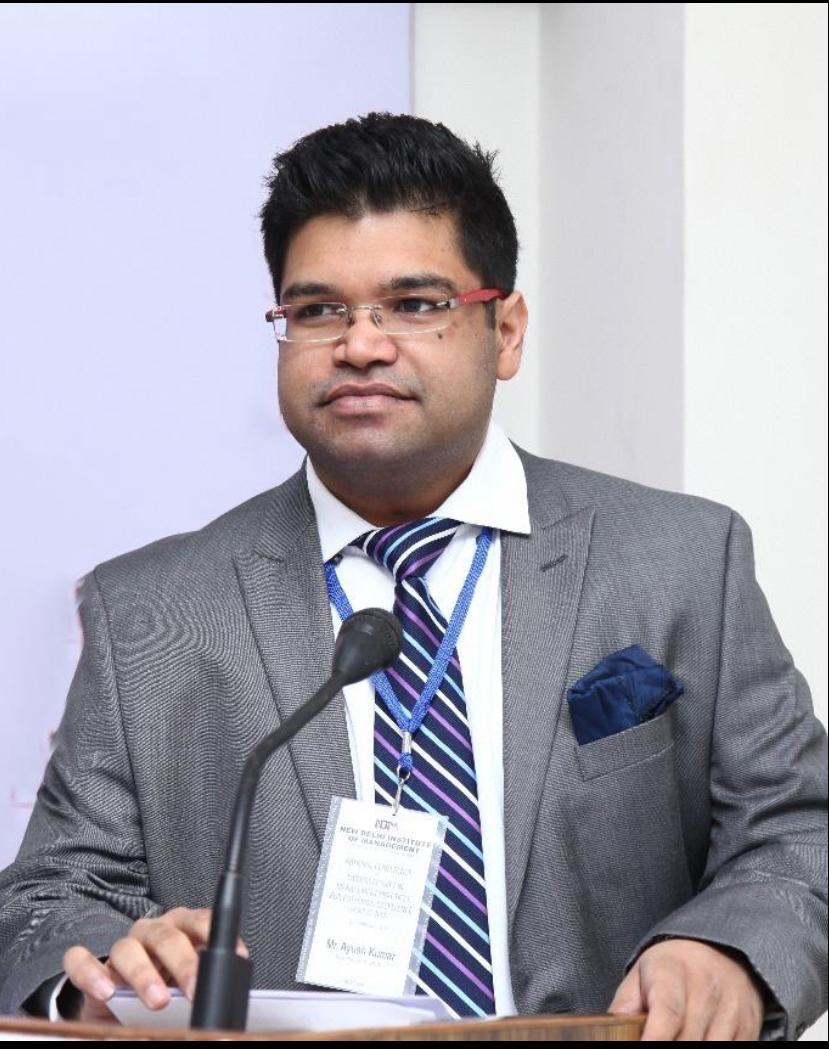
“Like some of the best things in life, my road to XLRI’s Executive General Management Programme (GMP) was not a straightforward one – it had its turns and hairpin bends, and personal and professional transitions big and small. But in the end, as they say, good things come to those who wait.”
I did my undergrad in the US, from the prestigious Florida Institute of Technology, in Aerospace Engineering. Eager to broaden my professional repertoire, I readily took up a position at a premier educational institution in Delhi, helping set up their engineering wing. When that project was briefly shelved, I was nonetheless retained, because the management apparently saw something in me – a spark, a flair for communication, networking, and corporate relations. I put in long hours, worked methodically and to the best of my ability, and before I knew it, I was Head of Corporate Relations and Outreach, and responsible for managing the admissions funnel, as well as corporate relations for placements. Admissions meant tying up with schools and coaching centres, regularly conducting events for their students on our campus, and creating a large pool of potential aspirants who dreamt of joining our institute.
But it was placements that really caught my heart – I recognized the fact that placements could be improved, but the way to do that was not to put in one giant effort at the end, but an incremental process year-round. My team and I first sat down to create our company pool – drawing from the existing lot of companies that came to campus, and then expanding to companies who came to other similar campuses. We also did a thorough market survey of companies we could potentially tap. Then, it was just networking, regular communication, and ensuring our students knew what they had to do to get placed. The process required hard work and persistence, but also creativity. I was hooked.
Three and a half years in, I decided it was time to take on a new challenge, and I left the relative comfort of a position I understood well, to join a startup in its infancy stage. The beauty of working in a startup is that everything becomes your job – one day you’re pitching to the biggest potential clients, the next day you’re bringing in coffee for a meeting. One day you’re working all day with the Director on the business positioning and customer mapping, and the next day you’re setting up the official Facebook page.
After a year and a half of doing that, and a total of five years of work experience, I thought I knew everything. To be honest, I started becoming complacent, too confident in my powers.
The top B-schools pride themselves on knocking the false confidence out of you, to test if they like who you are underneath. XLRI is no different. I had sat for a few interviews for regular MBA programmes, and generally considered myself in the more aware, more centred cohort of candidates. But when I entered the WelcomHotel Lobby in Dwarka for my GMP Group Discussion and Interview, I suddenly felt small, insignificant. Everybody around me was older, more experienced, having worked at companies I could only aspire to. The group intimidated me.
The group discussion topic – the importance of work-life balance – was when I truly discovered the diverse, and truly illustrious, backgrounds of my fellow candidates. One person had spent three years in consulting, working 14 hour days regularly. Two people were from public sector backgrounds, having proven themselves over and over. A few were from startups that had done exceedingly well. I relied on my tried and tested tools – articulate communication, and an understanding of the world. Real-world examples of Elon Musk (he of the 20-hour workdays), and Finland’s potential experiment of the four-day work week, came to my help as my points formed a focal point in the group discussion.
The interview, if anything, was more intimidating. The rumours were true – even if the interviewers are occasionally nice to the regular programme candidates, no such mercy is according to the Executive GMP aspirants. They know that we’ve had enough work experience that regular stress-testing doesn’t faze us. They go in for the kill. One of my interviewers, upon asking why I wanted to be an entrepreneur and understanding my entrepreneurial concept in depth, then went quiet for the next twenty minutes, noting something down on his sketchpad. He only spoke near the end of my interview, to tell me that based on his calculations (which looked incredibly detailed), my idea was not financially viable.
I knew the competition to be tough, and I had all but given up hope. So when I read online that I had converted the programme, my joy knew no bounds, because this programme had been my preference even back then. The first person I told was my mother, because no one else has quite been as invested in my success as she has. I then told my girlfriend, who had been by my side through the entire thing, constantly supporting me. It is those who are close to us, who make our success truly real.
XLRI’s Executive Programme is a select and curated for maximum impact, and one week into classes, we can already feel the programme’s intensity. Of my batch, I may not be the only one to think that even in this one week, I can feel a change in my thinking. I’m learning, and I’m evolving, and never again will I make the mistake of getting too complacent – my cohort is too smart, too hardworking, too exceptionally talented for that. But I am one of them, and simply by being among them, I know that I have succeeded.
XLRI’s GMP – here I come!
***
Recommended For You:
How I Overcame My Obstacles And Made It To XLRI Jamshedpur | Saloni Malhotra









Comments